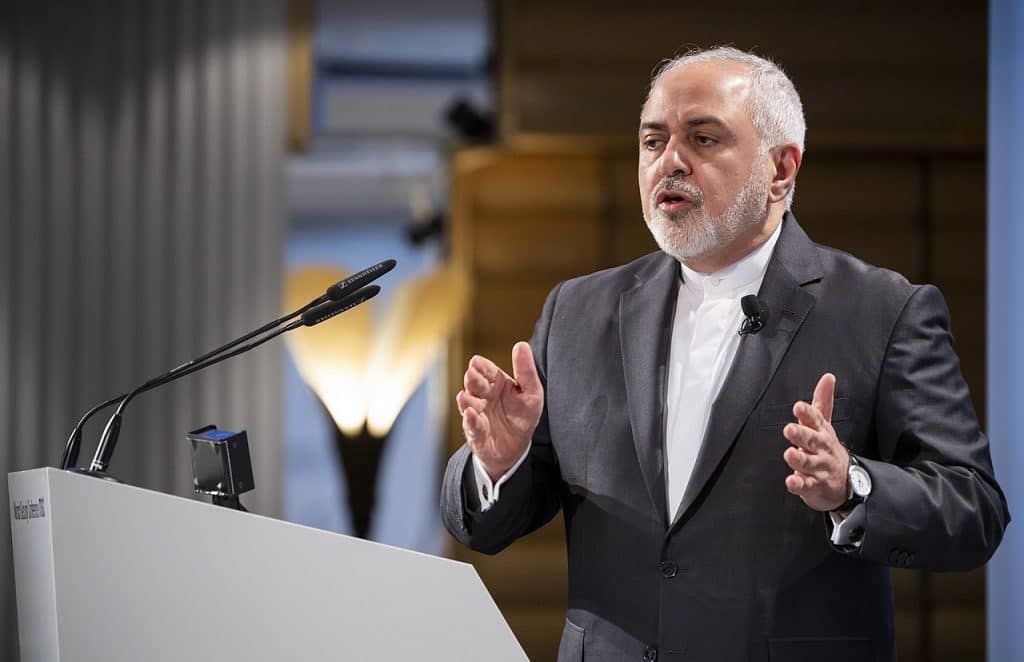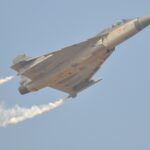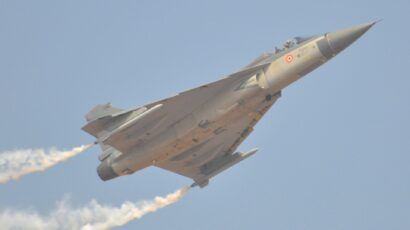Iran’s impending exit from the NPT: A new nuclear crisis
By Kaveh L. Afrasiabi, Nader Entessar | January 28, 2020
 Iran’s Foreign Minister Mohammad Javad Zarif, in 2019. Zarif will play an important role in talks on whether Iran and the United States will fully re-enter the Joint Comprehensive Plan of Action.
Iran’s Foreign Minister Mohammad Javad Zarif, in 2019. Zarif will play an important role in talks on whether Iran and the United States will fully re-enter the Joint Comprehensive Plan of Action.
Editor’s note: In January 2021, the US Justice Department charged one of the authors of this article, Kaveh Afrasiabi, with acting and conspiring to act as an unregistered agent of the government of Iran. Afrasiabi denied the charges and maintained that his limited international affairs consulting role for Iran’s Mission was perfectly legal under the UN norms and had absolutely no bearing on any of his publications. President Biden pardoned Afrasiabi of the charges in September 2023.By all accounts, the approaching 2020 Nuclear Non-Proliferation Treaty (NPT) conference will have to address new challenges on both the disarmament and nonproliferation fronts. These range from the failure of nuclear weapons states to disarm as the treaty requires to the collapse of the Intermediate-Range Nuclear Forces (INF) Treaty, the uncertainties surrounding the future of New START after its expiration in early 2021, North Korea’s relentless nuclearization, and Iran’s repeated explicit threats to quit the NPT ever since the United States withdrew from the 2015 nuclear deal in May 2018. Taken as a whole, these developments represent a big leap backward, imperiling international peace and security. Coinciding with the 75th anniversary of the Hiroshima and Nagasaki nuclear bombings, the upcoming NPT conference is a unique opportunity to address the root causes of the NPT’s “new crisis” and to map out prudent steps toward crisis prevention, particularly in the volatile Middle East.
Iran’s leaders are considering whether to ditch their safeguards agreements with the International Atomic Energy Agency (IAEA) and to withdraw from the NPT if confronted with new UN sanctions. Though up until now all of the sanctions have been unilaterally applied by the United States, renewed multilateral sanctions may follow the European decision to trigger the so-called “dispute resolution mechanism” of the 2015 agreement. Triggering this mechanism means that, unless the European countries take one of several off-ramps during the dispute resolution process, the matter will end up at the UN Security Council, which can “snap back” the muted UN sanctions on Iran. Although European diplomats may not have the intention of letting the issue reach the Security Council, their gamble is plagued with risks. Moreover, the snapping back of UN sanctions would compound the economic woes stemming from the Trump administration’s relentless “maximum pressure” strategy against Iran.
Iran’s threat to exit the NPT was initially floated by President Hassan Rouhani in his May 2018 letter to the other signatories of the nuclear agreement—China, France, Germany, Russia, and the United Kingdom—following Trump’s announcement on the United States’ withdrawal. Since then, frustrated by European governments’ failure to implement their obligations under the deal, above all by providing access to European banks and financial systems and by purchasing Iranian oil, Iran has taken five incremental steps in reducing its compliance with the agreement. Nevertheless, Iran has maintained that these are reversible steps and that it will resume compliance only if the other parties honor their commitment, the argument being that, to paraphrase Iran’s Foreign Minister Javad Zarif, Iran cannot be expected to be a unilateral party to a multilateral agreement.
Although it is difficult to know whether or when Iran will make good on its threat to exit the NPT, the West would be remiss not to take it seriously. In a precious few months, UN sanctions on Iran may be snapped back, triggering a tsunami of Iranian reactions under a firm conviction that Iran has been unjustly punished. Already, Iran is incensed that the US president’s extrajudicial assassination of Iran’s top general, Qassem Soleimani, has not drawn any UN condemnation, just as Washington’s unilateral exit from a UN-backed international agreement has received nothing more than statements of regret. Rubbing salt in the wounds, France, Germany, and the United Kingdom have repeatedly issued false statements claiming that they have fulfilled their nuclear deal obligations, drawing terse responses from Iran. As a result, while the US assassination of Soleimani has closed all pathways for US-Iran diplomacy for the foreseeable future, Europe’s perceived common cause with the United States has caused a growing divide between Europe and Iran—one that will boil over if triggering the dispute resolution mechanism yields a new round of UN sanctions in the proximate future.
What would an Iranian NPT withdrawal look like? It would spell the end of all IAEA inspections of Iran’s nuclear facilities and the dawn of a new era of complete lack of transparency on Iran’s nuclear activities. This would be a sharp departure from the policy under the nuclear agreement, under which Iran allows short-notice inspections and 24-hour surveillance by the IAEA. And to get a sense of what might happen beyond that, one need only to look at the case of North Korea, which withdrew from the treaty in 2003 and tested its first nuclear weapon three years later, in 2006.
One idea making the rounds in Iran is to preempt the European effort to snap back the UN sanctions by hitting the United Nations with a conditional notice of withdrawal from the NPT, stipulating that it will withhold its decision to quit the treaty only if the other signatories to the nuclear agreement uphold their commitments. The advantage of such a conditional notice of withdrawal is that, unlike North Korea’s exit, Iran’s move would not be automatically connected to a pernicious nuclear weapons drive, but rather to Iran’s legitimate demand for fair play and the end of Western double standards exacting a heavy toll on Iran’s economy and the well-being of its population.
Without a doubt, Iran’s NPT exit would represent a severe blow to the global nonproliferation regime, irrespective of Iran’s stated intentions. This is all the more reason for the European governments to actively explore diplomatic avenues to prevent such an unwanted outcome, requiring serious policy adjustments on their part. Instead of unwisely following in the Trump administration’s footsteps, European governments should use the dispute resolution mechanism’s Joint Commission, take a firm stance vis-à-vis US withdrawal, and provide real meaning to their various countermeasures intended to offset the unilateral US sanctions. This might include a new “blocking statute” that forbids European companies from complying with US sanctions as well as a new financial mechanism to foster lawful humanitarian trade with Iran. Due to US opposition, these countermeasures have heretofore remained as merely commitments on paper.
Going forward, either Europe will need to retreat from its premature and unwise triggering of the dispute resolution mechanism and seek an off-ramp alternative or it must face the possibility of the dire consequences of Iran’s withdrawal from the NPT and all of its NPT-related IAEA obligations, which would in turn have serious repercussions for the international nonproliferation regime. This nightmare scenario, although a distinct possibility on the horizon, is not inevitable and, indeed, much depends on European smart diplomacy to avert it.
Together, we make the world safer.
The Bulletin elevates expert voices above the noise. But as an independent nonprofit organization, our operations depend on the support of readers like you. Help us continue to deliver quality journalism that holds leaders accountable. Your support of our work at any level is important. In return, we promise our coverage will be understandable, influential, vigilant, solution-oriented, and fair-minded. Together we can make a difference.
Keywords: Iran, Iran nuclear deal, JCPOA, NPT, NPT Review Conference, Nuclear Non-Proliferation Treaty, UN Security Council, sanctions
Topics: Nuclear Risk, Opinion
















